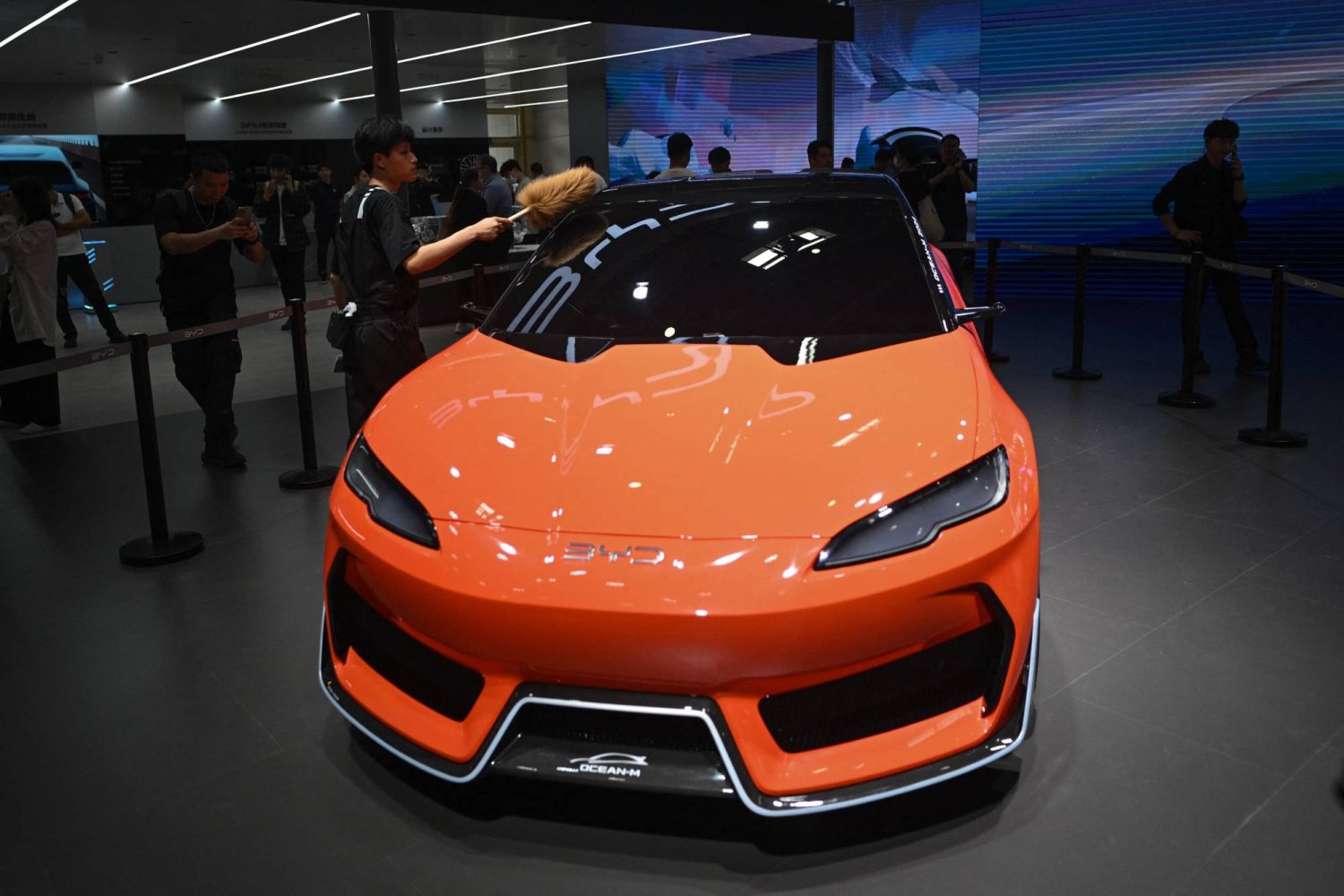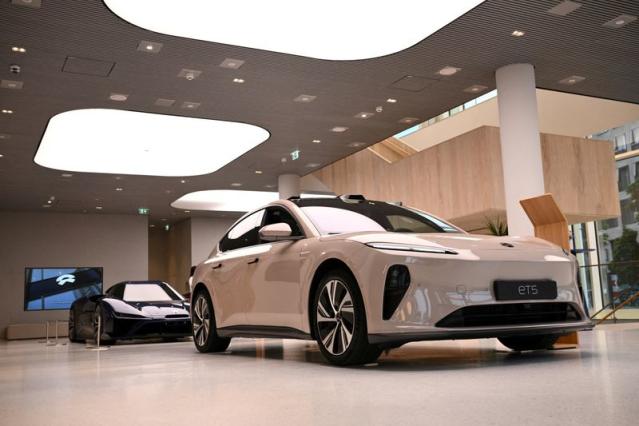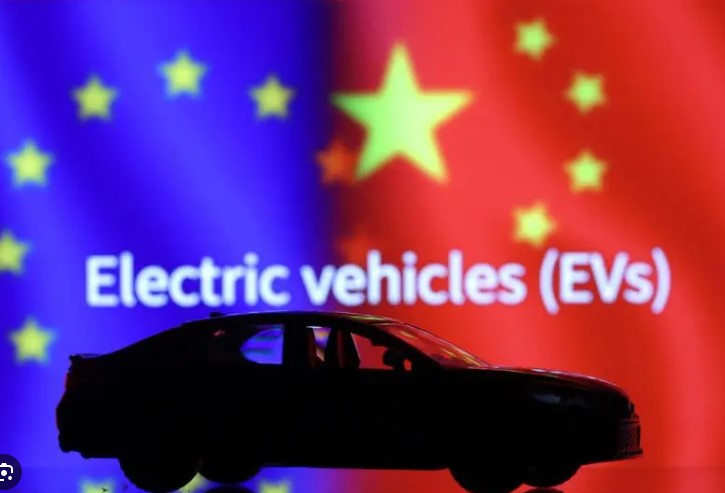Chinese automakers have urged the Chinese government to raise tariffs on gasoline-powered cars imported from Europe in retaliation for Brussels’ export restrictions on Chinese-made electric cars, the state-run Global Times reported on Wednesday (June 19). At a closed-door meeting on Tuesday, also attended by European automakers, the report said, China’s auto industry “urged the government to take firm countermeasures and proposed to proactively consider raising provisional tariffs on large-displacement gasoline vehicles.” The meeting was organized by China’s Ministry of Commerce in Beijing and attended by SAIC Motor, BYD, BMW, Volkswagen and Porsche units, according to two people with direct knowledge of the matter.

The main aim of the meeting was to pressure Europe to oppose the tariffs announced by Brussels last week to protect its auto industry from Chinese competition, the report said. Mercedes-Benz, Stellantis and Renault also attended the meeting, two sources familiar with the matter told Reuters. The ministry did not immediately respond to a faxed request for comment. BMW, Volkswagen, Stellantis and Renault declined to comment. A Mercedes-Benz spokesman said the company supports a free trade system based on WTO rules. “Against the backdrop of modern globalization and economic interdependence, the motto for ensuring prosperity and peace is dialogue and constructive cooperation.

We look forward to politicians’ efforts to continue this dialogue.” With the EU process allowing for a review, industry sources say both Europe and China have reasons to want to reach an agreement in the coming months to ease tensions and avoid billions of dollars in new costs for Chinese electric car makers. “Customs war” Steffen Hartung, CEO of Bosch, the world’s largest auto supplier, said the announcement of the tariffs could trigger talks between Brussels and China aimed at avoiding the tariffs. The European Commission said on Wednesday it was investigating the situation “with a view to discussing whether a mutually acceptable solution can be found.” The EU’s trade policy has become increasingly protective amid concerns that China’s manufacturing-led, debt-driven development model could flood the 27-member nation with cheap products, including electric vehicles, as Chinese companies try to boost sales overseas in order to stimulate sluggish domestic demand.
The European Commission said on June 12 that it would impose anti-subsidy tariffs of up to 38.1% from July on imported Chinese-made electric vehicles, opening a new front for the European Commission following the U.S. move in May to raise tariffs on Chinese-made electric vehicles. Trade war between Western countries and Beijing. “Personally I think it’s unfair to start a tariff war just because of (China’s) capacity utilization rate and lack of demand for Chinese cars with alternative power technology,” said Zhang Yansheng, a senior researcher at the China Center for International Economic Exchanges. He added that “China appears to have adopted a series of measures to resolve the overcapacity issue, so China’s capacity utilization rate will continue to rise this year, next year and over the next four years.” The Global Times first reported late last month that the Chinese government’s Automotive Research Center proposed raising import tariffs on imported gasoline sedans and SUVs with engines of 2.5 liters or more to 25 percent from the current 15 percent.

Chinese authorities have previously hinted at possible retaliation in comments to state media and in interviews with industry representatives. Hostile note The paper also suggested last month that Chinese companies were planning to ask authorities to open an anti-dumping investigation into European pork products, which China’s Ministry of Commerce announced on Monday. The paper also called on the Chinese government to address EU milk imports. According to data from the China Passenger Car Association, exports of passenger cars with engines of 2.5 liters or more from Europe to China will reach 196,000 units in 2023, up 11% from the previous year. In the first four months of 2024, exports of such cars from Europe to China reached 44,000 units, down 12% from the same period last year. EU car exports to China will reach a total of 19.4 billion euros ($20.8 billion) in 2023, and the EU bought 9.7 billion euros worth of electric cars from China, according to Eurostat statistics.

China accounts for about 30% of sales of German carmakers, and Germany is by far the largest exporter of cars with engines of 2.5 liters or more. Since the beginning of the year, the company has shipped $1.2 billion worth of vehicles to China, according to Chinese customs data. China’s three most popular European imports are the Mercedes-Benz GLE-Class large SUV, Porsche’s S-Class sedan and the Cayenne. According to data from China Merchants Bank International, these three models accounted for more than a fifth of the total 155,841 European-branded cars imported in the first five months. Slovakia is China’s fourth-largest supplier of wide-body vehicles and the second-largest supplier to the EU. This year it exported $803 million worth of SUVs. The United States, Britain and Japan also export large amounts of cars with engines larger than 2.5 liters and would likely benefit most from the planned tariff hikes.




